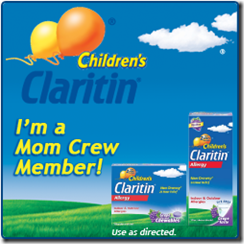Health Insurance Options for Newborn Children
Guest post by: Carrie McLean
Consumer specialist with eHealthInsurance
Guest post by: Carrie McLean
Consumer specialist with eHealthInsurance
Enrolling a newborn under a parent’s employer-sponsored plan. If you or your child’s other parent are currently covered under an employer-sponsored health insurance plan, this is often your baby’s best coverage option. Employer-based plans tend to provide robust benefits that may include preventive checkups, well-baby visits and immunizations – often at no or little out-of-pocket cost. A few considerations:
· The child may be covered under either parent’s employer plan (or both), even if the parents aren’t married
· Adding a dependent may substantially increase the amount the employee is required to contribute from his or her paycheck towards the monthly premium
· You don’t need to wait for the employer’s open enrollment period to add a newborn to your plan but must typically enroll the baby within a specific time-frame, typically thirty days after birth
· If you miss the enrollment window, you may want to consider a short-term plan to temporarily cover the baby; keep in mind, however, that while short-term plans can provide protection in case of serious illness or injury, they often don’t cover preventive care or regular checkups
· Contact your Human Resources department or benefits administrator before your child is born to make sure that you understand how the enrollment process works and how much additional money will be withheld from your paycheck for dependent coverage
Enrolling a newborn under a parent’s individually-purchased plan. Individually-purchased health insurance plans may provide coverage for individuals or for families. The 2010 Affordable Care Act strengthened these plans by doing away with lifetime coverage limits for basic covered services and making certain preventive care services available at no out-of-pocket cost. According to eHealth, Inc’s 2011 Cost and Benefits Report, the average monthly premium paid for a family of two or more in 2011 was $414 per month* Nearly nine in ten (88.8%) of the plans surveyed in the report included well-baby coverage.
· If you already have an individually-purchased policy, contact your licensed agent or insurer to learn how to add a dependent and how much your monthly premiums may increase as a result
· Be sure to add your newborn as a dependent within the “qualifying event” period, typically thirty days following birth
· When applying or re-applying for individual or family coverage it is possible for adults age 19 and over to be declined coverage due to pre-existing medical conditions; such a decline may result in the decline of the application as a whole, including for the coverage of dependents
Enrolling a newborn in a child-only individual plan. “Child-only” plans are individual health insurance policies made available to children age 18 and under with no parent or guardian listed on the same policy. The 2010 health reform law prevents insurers from declining applications for children based solely on pre-existing medical conditions. However, child-only policies are not available in many states, and states where child-only policies are available may limit enrollment to designated open enrollment periods or only with the occurrence of a “qualifying event.”
· Find out if child-only plans are available in your state by contacting your state department of insurance or a licensed agent
· Review eHealthInsurance’s recently published chart describing the availability of child-only plans across the country
· Birth may be considered a qualifying event and enrollment may be allowed within a specific period of time after birth in states where child-only health insurance plans are available
· In states where child-only plans are not available you may still be able to apply for an individually-purchased family plan with yourself as the policyholder and your child as a dependent, but remember that the application may be declined due to your own pre-existing medical conditions
Enrolling a newborn in a state-sponsored health insurance program. If no other options are open to you and you can’t afford coverage on your own, you may qualify for government assistance. Depending on your income, you and/or the baby may qualify for Medicaid. In some states there may be other programs available specifically for uninsured infants and children.
· Contact your state department of insurance or the non-profit Foundation for Health Coverage Education (coverageforall.org) to learn more
· If you face an enrollment delay with a government program, consider a short-term plan to temporarily cover the baby; keep in mind, however, that while short-term plans can provide protection in case of serious illness or injury, they often don’t cover preventive care and regular checkups
Disclaimer: This is a guest post.
































0 comments:
Post a Comment